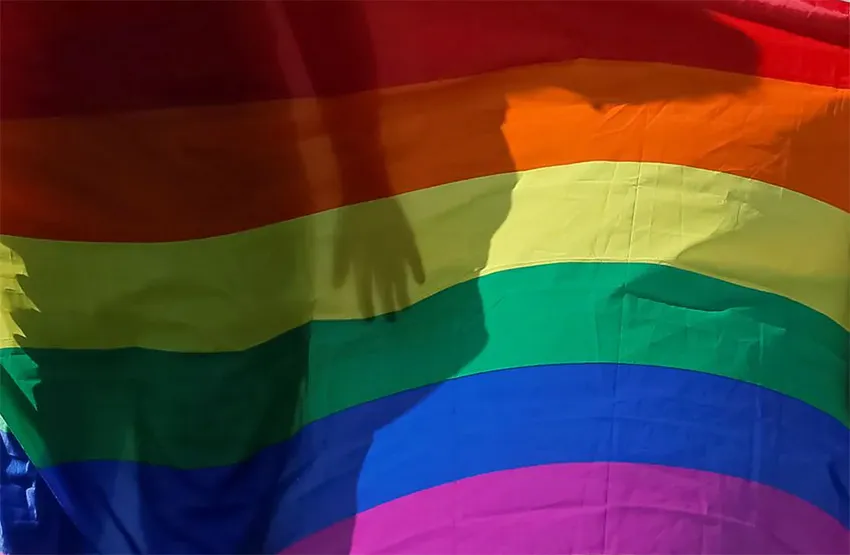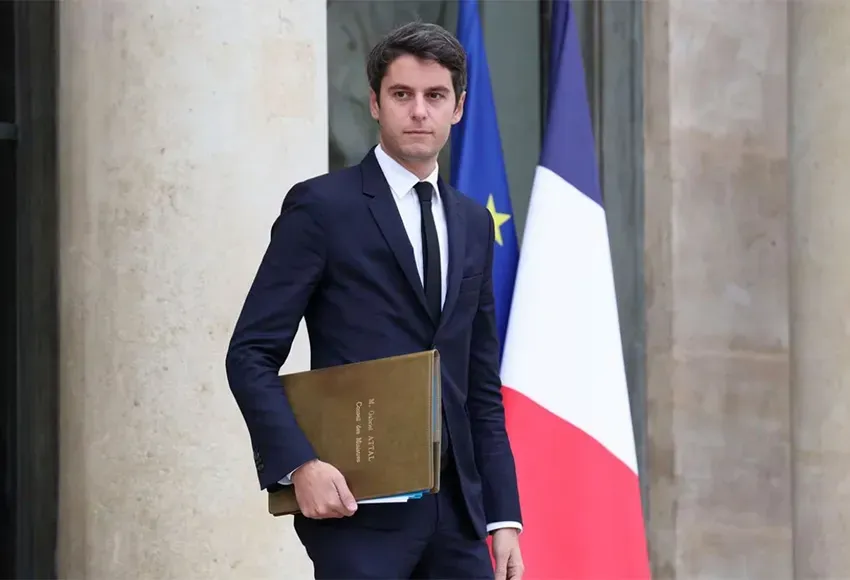France appoints country's first Gay prime minister
Gabriel Attal has been appointed France's new prime minister, becoming the first out Gay person to serve in the position. The 34-year-old is also the youngest to fill the role in over 65 years.
Attal has served as the minister of education since July, and previously served as minister of public works and public accounts. He was also the government spokesman from 2020 to 2022, during the height of the COVID-19 pandemic.
Attal came out in 2018 after being outed on social media by his former classmate, Juan Branco, a former lawyer for Julian Assange. He said in a TV interview that he often faced homophobic bullying from his classmates, implying that Branco was the ringleader, and that the latter was "obsessed" with his sexuality.
Attal then made public his civil union with Stéphane Séjourné, a member of the European Parliament. The two have since reportedly broken up but have not spoken publicly about their relationship.
Attal is France's most popular politician, according to a December poll by IPSOS, though his approval rating sits at just 40%. He replaces Elisabeth Borne, who resigned on Monday after 20 months in the position.
Attal's appointment has been widely celebrated by Queer activists, including the president and CEO of the LGBTQ+ Victory Institute, Annise Parker, who said in a statement, "At a time when our rights are under attack across the globe, France is sending a powerful statement by appointing its first out LGBTQ+ prime minister – one of the highest-ranking positions held by an LGBTQ+ person anywhere in the world.
"Democracies are stronger when LGBTQ+ people can participate at every level of government, and Prime Minister Attal's appointment will inspire even more LGBTQ+ people to consider public service."

Ukrainian Queer community pushes for same-sex civil marriage
Queer couples in Ukraine are pushing to have their government recognize same-sex marriage in a push for equality in the war-torn country that has received plenty of international support and at-home pushback.
Months after Russia's invasion, a citizen petition calling for the legalization of same-sex marriages received more than 25,000 signatures, prompting a response from Volodymyr Zelenskyy, who said constitutional changes for same-sex marriage could not be made during wartime.
In early 2023, a draft civil union law was introduced in the parliament that would give same-sex partnerships legal status. The law would mean official recognition for partners of soldiers who are killed, the right to make medical decisions if their loved ones are injured, and the ability to collect death benefits from the state.
"It is important that the international community supports Ukraine to adopt legislation that recognizes the rights of LGBTI couples and ensures that two people of any gender can create a family in safety and dignity," said Marie Struthers, Amnesty's director for Eastern Europe and Central Asia.
Inna Sovsun, a member of the Ukrainian parliament who submitted the draft bill in March, said that the political response has been diverse, but that while she expected the process to be difficult, it has turned out more positively than she anticipated.
"Since we introduced the bill, my belief that it will get passed is growing stronger," said Sovsun. "We will get it done. The question is, when?"
The government has committed to approve the bill by the end of 2023, according to the European Commission.
In June last year, the European Court of Human Rights (ECHR) ruled that a same-sex couple who tried unsuccessfully to get married in Ukraine suffered discrimination. The court ruled that Ukraine had violated articles on discrimination and the right to private and family life.
"We don't want to be seen as [a country that] violates the ECHR, so we need to do something about that," added Sovsun.
While attitudes toward the community have improved in recent years – with 58% of Ukrainians feeling positive or neutral toward their Queer compatriots, according to a recent survey – societal attitudes have taken longer to penetrate the conservative and patriarchal military.


